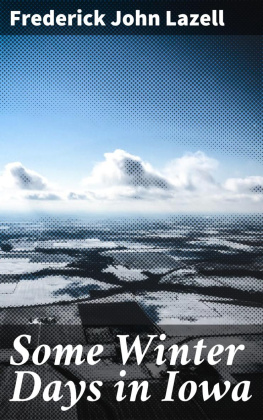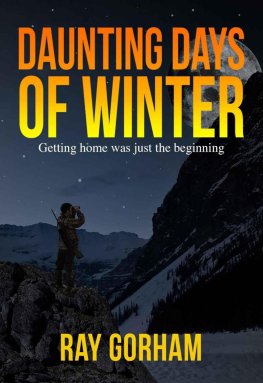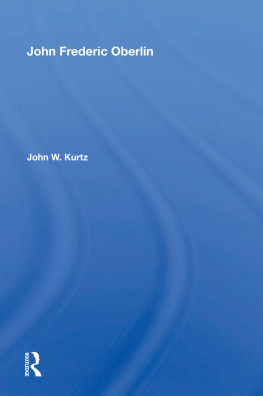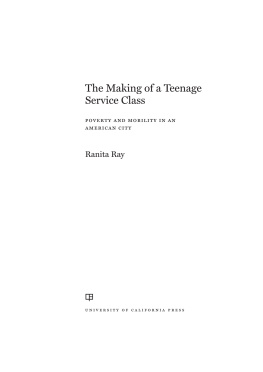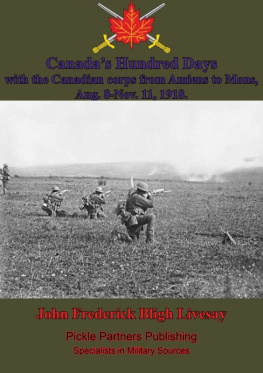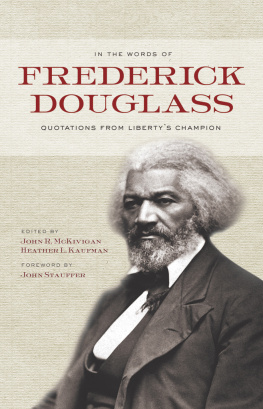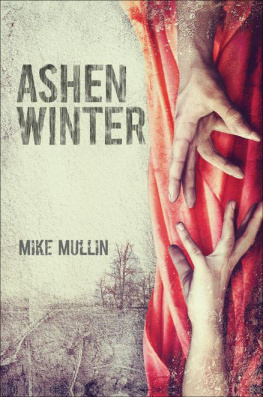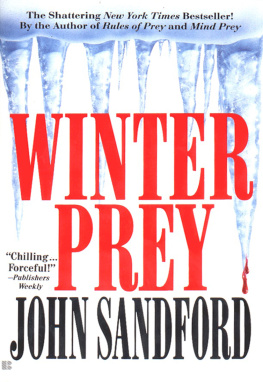FOREWORD
Table of Contents
I am glad to have the privilege, thus in advance, of looking over Mr. Lazell's delightful essays. He has surely a gift in this sort of thing. We are grateful to the man who shows us what he sees in Nature, but more to the man who like our present author shows us how easy and blessed it is to see for ourselves.
Mr. Lazell reminds me of Thoreau and Emerson, and I can suggest no better foreword than the passage from the last named author, from the Method of Nature, as follows:
"Every earnest glance we give to the realities around us with intent to learn, proceeds from a holy impulse and is really songs of praise. What difference can it make whether it take the shape of exhortation, or of passionate exclamation, or of scientific statement? These are forms merely. Through them we express, at last, the fact that God has done thus or thus."
Thomas H. Macbride
Iowa City, Iowa
October 17, 1907
I. THE WOODLANDS IN JANUARY
Table of Contents
Humanity has always turned to nature for relief from toil and strife. This was true of the old world; it is much more true of the new, especially in recent years. There is a growing interest in wild things and wild places. The benedicite of the Druid woods, always appreciated by the few, like Lowell, is coming to be understood by the many. There is an increasing desire to get away from the roar and rattle of the streets, away from even the prim formality of suburban avenues and artificial bits of landscape gardening into the panorama of woodland, field, and stream. Men with means are disposing of their palatial residences in the cities and moving to real homes in the country, where they can see the sunrise and the death of day, hear the rhythm of the rain and the murmur of the wind, and watch the unfolding of the first flowers of spring. Cities are purchasing large parks where the beauties of nature are merely accentuated, not marred. States and the nation are setting aside big tracts of wilderness where rock and rill, waterfall and caon, mountain and marsh, shell-strewn beach and starry-blossomed brae, flowerful islets and wondrous wooded hills welcome the populace, soothe tired nerves and mend the mind and the morals. These are encouraging signs of the times. At last we are beginning to understand, with Emerson, that he who knows what sweets and virtues are in the ground, the waters, the plants, the heavens, and how to come at these enchantments, is the rich and royal man. It is as if some new prophet had arisen in the land, crying, "Ho, every one that is worn and weary, come ye to the woodlands; and he that hath no money let him feast upon those things which are really rich and abiding." While we are making New Year resolves let us resolve to spend less time with shams, more with realities; less with dogma, more with sermons in stones; less with erotic novels and baneful journals, more with the books in the running brooks; listening less readily to gossip and malice, more willingly to the tongues in trees; spending more pleasureful hours with the music of bird and breeze, rippling rivers, and laughing leaves; less time with cues and cards and colored comics, more with cloud and star, fish and field, and forest. "The cares that infest the day" shall fall like the burden from Christian's back as we watch the fleecy clouds or the silver stars mirrored in the waveless waters. We shall call the constellations by their names and become on speaking terms with the luring voices of the forest fairyland. We shall "thrill with the resurrection called spring," and steep our senses in the fragrance of its flowers; glory in the gushing life of summer, sigh at the sweet sorrows of autumn, and wax virile in winter's strength of storm and snow.
We shall begin our pilgrimages lacking in Nature's lore, many of us, as were four men who recently walked down a city street and looked at the trees which lined the way. One confessed ignorance as to their identity; another thought he knew but couldn't remember; a third said they looked like maples; and a fourth thought that silence, like honesty, as the copybooks used to tell us, was the best policy. And yet the name linden was writ large on those treeson the beautiful gray bark, the alternate method of twig arrangement, the fat red winter buds, which shone in the sunshine like rubies, and especially on the little cymes of pendulous, pea-like fruit, each cyme attached to its membranaceous bract or wing. Of course, if the pedestrians had been in the midst of rich woods and there found a trunk of great girth and rough bark, surrounded by several handsome young stems with close-fitting coats, the group looking for all the world like a comfortable old mother with a family of fresh-faced, willowy, marriageable daughters, every member of the quartet would have chorused, bass-wood.
But no one need be ashamed to confess an ignorance of botany. Botanical ignorance is more common than poverty. It has always been prevalent. And the cause of it may be traced back to the author of all our short-comings, old Adam. We read that every beast of the field and every fowl of the air were brought to Adam to see what he would call them; and whatsoever Adam called every living creature, that was the name thereof. But why, oh why, didn't he name the trees? If he had known enough of the science to partake of the fruit of the tree of life he might have lived long enough to write a systematic botany, satisfactory alike to the Harvard school of standpat systematists and their manual-ripping rivals in nomenclature. But he didn't; and no one else may ever hope to do it.
Eve had never read a book on how to know the wild fruits, and her first field work in botany had a disastrous termination; it complicated the subject by the punishment of thorns and thistles. Cain's conduct brought both botany and agriculture into disrepute. Little more is heard until Pharaoh's daughter went botanizing and found Moses in the bulrushes. Oshea and Jehoshua showed some advancement by bringing back grapes and figs and pomegranates from the brook Eschol as the proudest products of the promised land. But Solomon was the only man in the olden times who ever knew botany thoroughly. We are told that he was wiser than all men. "Prove it," says some doubting reader, moving for a more specific statement. So the biographer adds: "He spake of trees, from the cedar that is in Lebanon even unto the hyssop that springeth out of the wall."
Four centuries later, Daniel, Shadrach, Meshach, and Abednego anticipated Emerson's advice about eating bread and pulse at rich men's tables. The historian tells us that they were men skilful in all wisdom, cunning in knowledge, and understanding science. Possessing such wisdom, Daniel knew it would be easy to mix up the wicked elders who plotted against the virtue of the fair Susanna by asking them a question of botany. One said he saw her under a mastick tree and the other under a holm tree. This gave Shakespeare that fine line in The Merchant of Venice, "A Daniel come to judgment; yea, a Daniel." But in these latter days we rarely read the story of Susanna, and Shakespeare's line is not understood by one play-goer in fifty.
When the diminutive Zaccheus climbed into a shade tree which graced a town lot in Jericho he gave the translators for "the Most High and Mighty Prince James" another puzzle, for they put him on record as going up into a sycamore tree. We had always supposed that this was because the sycamore's habit of shedding its bark made smooth climbing for Zaccheus. But scientific commentators tell us now that it was not a sycamore tree, but a hybridized fig-mulberry!


